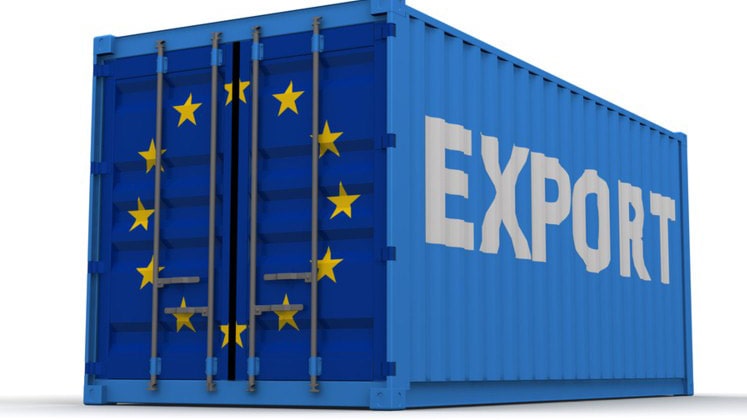
The European Union (EU) is the largest export destination for Bangladesh. Currently, 58 per cent of the total export and 64 per cent of total garment items in particular of the country are destined to the EU.
However, as Bangladesh is set to graduate from the grouping of the LDCs in 2026 which would shorn the country of the trade benefits it currently enjoys, Bangladesh Government has been lobbying for the GSP Plus status to retain the duty benefit.
Meanwhile, on its website, the European Commission (EC) said the GSP scheme is now being updated to improve its overall efficiency and effectiveness to respond to future challenges for beneficiary countries while adding the review also aims to facilitate access to the GSP Plus arrangement for the growing number of LDCs graduating from the Everything But Arms (EBA) facility even as on 21 September, the European Commission, which is the executive branch of the EU, submitted a new GSP proposal which will be discussed at the EU Parliament for 2024-2034 for approval.
The new proposal will be final when adopted by the European Parliament and the EC even if the adoption could take place in the last quarter of 2022 while the new GSP regulation is expected to enter into force on 1st January 2024, according to the website of the EC, while the current scheme expires by the end of 2023.
The new scheme for the LDCs and developing countries will run for 10 years from 2024 to 2034.
Speaking about the new GSP proposal on 22 September, Valdis Dombrovskis, Executive Vice-President and Commissioner for Trade of the EC, said: “Now, we want to build on the success of the GSP scheme and take it further…; There is no need to overhaul the scheme, as we did 10 years ago. But we will do some fine-tuning to respond better to the changing needs and challenges of beneficiary countries – and to bring the scheme closer in line with our trade sustainability principles,” while adding, “Today’s proposal aims to reinforce the scheme’s social, environmental and climate aspects, reduce poverty and increase export opportunities for developing countries.”
Even as Bangladesh’s prospects of keeping exporting to the European Union duty-free have reportedly brightened as the bloc has proposed to update rules to allow a growing number of graduating LDCs to qualify for the preferential trade benefit, there seem to be some areas of concern still.
Obtaining the GSP Plus status will not be difficult if the EU finally adopts the proposed rules without the threshold criteria, reportedly claimed BGMEA President Faruque Hassan.
There’s reportedly a condition that a least-developed country’s share in the EU’s total import can’t be more than 7.4 per cent to qualify for the duty-free export facility under the region’s Generalised Scheme of Preferences even as the new proposal reportedly sets the general threshold at 47 per cent and textile threshold at 37 per cent, down from the existing 57 per cent and 47.2 per cent respectively, to leave more space for poorer developing countries.
However, many in the industry feel it is likely to put pressure on Bangladeshi woven apparel export as it focuses only on preference eligibility under the GSP Plus scheme that demands enhancing local value addition even as Mustafizur Rahman, Distinguished Fellow at the Centre for Policy Dialogue (CPD) on his part reportedly added, “In case the thresholds are lowered, Bangladesh’s major export items, which are well above those thresholds, may not gain from GSP. However, we may have some gains in other items, which we do not export much. The ceiling may deprive us of the benefit in items in which we have good export performance.”
At present, Bangladesh apparel industry depends on 60 per cent imported woven fabric, and to reduce this dependency, the sector has to develop local woven textile industries, as per the BGMEA, while speaking to the media, BGMEA Director Abdullah Hil Rakib reportedly maintained, “We have about 10 years in hand to strengthen backward linkage of man-made fibre-based apparel and it is possible to do it within this time,” adding, “We are also ahead of many countries in the sustainability index required to get GSP Plus after LDC graduation. Moreover, we already have a vertical set-up in knit-based apparel. Now, we just have to improve backward linkage for man-made fibre.”
He further reportedly added that it was possible to improve on man-made fibre items if the Government provides policy support even as Bangladesh has sought for 12 years of grace period to recover from the impacts due to COVID-19 even though an LDC country gets three years of EBA (eventing but arms) facilities after graduation.
There are some challenges that Bangladesh must address through diplomacy in order to achieve GSP Plus or properly utilise the trade preference, reportedly stated Abdullah Hil Rakib while adding, “For example, under the EBA, LDCs were allowed preferential ‘rules of origin’ (RoO) permitting ‘single transformation’ in the production chain of the exportable, but preference eligibility under the GSP Plus scheme demands ‘double transformation’— cotton or fibre to product.”
Meanwhile, the BGMEA is pushing hard for extension of the duty benefits in the European market; even it has called upon countries like Denmark and Germany seeking their support in this direction.
According to media reports, Faruque Hassan has sought Denmark’s support in the continuation of duty-benefits for Bangladesh in the European Union for 12 years while underlining that this support was needed to ensure Bangladesh’s smoother transition after graduation from LDC in 2026, while discussing the issue with Ambassador of Denmark to Bangladesh Winnie Estrup Petersen, who called upon the BGMEA President recently. He requested the Ambassador to share the positive development and stories about the RMG industry that she witnessed during her stay in Dhaka, with both brands and consumers.
Meanwhile, in a separate development, BGMEA President, while welcoming the new German Ambassador and apprising him of the present situation of the Bangladesh’s apparel industry, its challenges, opportunities and future priorities, sought Germany’s support to continue duty benefits in the European Union market for 12 years after LDC graduation.
According to a press release issued in this direction, Faruque Hassan sought the same when the newly-appointed Ambassador of Germany to Bangladesh, H.E. Achim Tröster, paid him a courtesy call at the BGMEA office in Dhaka on 4 October.
At a time when the BGMEA is pushing it hard to ensure extension of the duty benefit while also seeking support of various countries for the same, Commerce Minister Tiou Munshi has reportedly maintained Bangladesh will have to be cautious in fulfilling important conditions for obtaining the GSP Plus status of the EU.
“We have to remain cautious because there are new expectations from our European colleagues on labour, good governance and environment issues…The EU has proposed to add new international conventions and agreements to the GSP list – such as the Paris agreement on climate change, and some new ILO and UN conventions,” said the Commerce Minister, adding, “We have to work with other ministries to ensure we are fully compliant before the time comes when we apply for GSP Plus.”
For the uninitiated, the world’s largest trade bloc last month proposed lifting a major condition, a 7.4 per cent import threshold, of the GSP Plus for 2024-34 even as Bangladesh is reportedly already at 26 per cent.
“We have to remain cautious throughout the journey. We are in 2021. The new GSP regulation kicks in January of 2024,” said Tipu Munshi, while adding, “We graduate in 2026 and EBA (Everything but Arms) ends in 2029. As per the draft of the new GSP regulation, with the major obstacle removed, we will qualify for GSP Plus.”
Meanwhile, taking part in a recent event, former BGMEA President Dr. Rubana Huq reportedly maintained that in spite of the import threshold removal proposal, Bangladesh needs to improve in some other areas to obtain the GSP Plus status.
Apart from human and labour rights and environmental protection, the EU said it would also include political issues for eligibility of developing countries, maintained the ex-BGMEA President while adding it was time to tell the EU that mutual benefits should be ensured as the latter always sets conditions on allowing trade benefits even as she added Bangladesh has performed substantially well in terms of sustainability as the country today has the highest or 150 green garment factories in the world and is the lowest carbon emitter, to wind up on a positive note.






